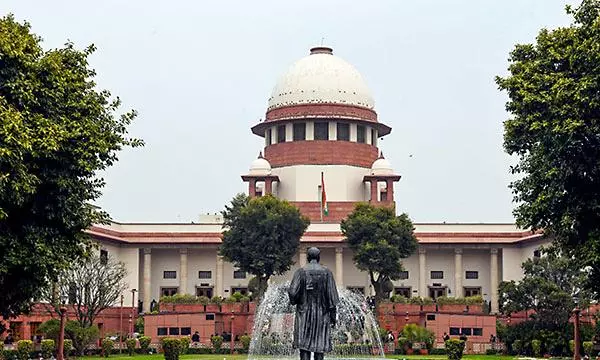
Why SC upholding 6A of Citizenship Act is a blow to BJP govt in Assam
Assam Chief Minister Himanta Biswa Sarma has repeatedly said NRC will be redone with 1951 as the cut-off date; this may be out of the question now

Putting a four-decade-long row over the issue of citizenship to rest, the Supreme Court on Thursday upheld the validity of Section 6A of the Citizenship Act in a landmark ruling that is a setback to the BJP.
The verdict has, however, cleared all the legal hurdles to complete the National Register of Citizens (NRC) process, which has been pending since the final draft was published in August 2019.
What is Section 6A?
Section 6A of the Citizenship Act, 1955, was introduced in 1985 as part of the Assam Accord to address illegal immigration into Assam from Bangladesh. It grants citizenship to persons who entered Assam before January 1, 1966, and allows those who arrived between January 1, 1966, and March 24, 1971, to register as citizens after a 10-year waiting period, during which they cannot vote.
Also Read: Why Himanta's enthusiasm over Land Act, Assam Accord is raising eyebrows
The Assam Accord was signed in 1985 between the All Assam Students Union (AASU) and the Union government, after six years of agitation demanding detection and deportation of illegal immigrants.
Objections of cut-off date
A five-judge Constitution Bench, including Chief Justice DY Chandrachud, delivered the judgment. Justice Chandrachud said the Assam Accord was a political solution to the problem of illegal migration, and Section 6A was the legislative solution.
Various organisations had objected to the 1971 cut-off date for Assam as exclusionary. They petitioned the Supreme Court seeking 1951 as the cut-off date. They questioned why only Assam was singled out to implement Section 6A of the Citizenship Act.
The judgment comes as a major setback to the BJP and its government in Assam, which has been raking up the issue of changing the cut-off date to 1951 from the existing 1971.
Assam Chief Minister Himanta Biswa Sarma has repeatedly said the NRC will be redone with 1951 as the cut-off date.This may be out of the question now.
SC to supervise implementation
However, the Supreme Court bench today acknowledged the issue of illegal immigrants and said there are over 40 lakh illegal immigrants in the state, and called for their deportation.
In his judgment, Justice Surya Kant said the directions issued in the Sarbananda Sonowal judgment to detect and deport illegal migrants are to be implemented.
The statutory machinery and tribunals tasked with the identification of illegal migrants were inadequate and not proportionate to the requirement of giving time-bound effect to the legislative objectives of Section 6A, the Foreigners Act, the Foreigners Tribunals Order and the Passport Act, he noted.
Justice Kant said the implementation of these provisions cannot be left to the mere wish of the executive authorities and hence constant monitoring by the Supreme Court is necessary.
Also Read: Manipur:Central forces in full swing, but there is no let-up in violence
For this purpose, the matters were directed to be placed before a bench to monitor the implementation of the directions, he said.
No surprise
According to experts, the judgment was on expected lines.
“This verdict is on expected lines as the very petition challenging the constitutional provision (6A of the Citizenship Act) was not legally very tenable,” said Sishir Dey, a former member of the Foreigners Tribunal.
“The verdict otherwise will not have any larger implication as it will more or less maintain the status quo,” added Dey.The AASU welcomed the verdict and termed it a victory of the Assam Accord and the people of Assam. “It is a victory for the Assam Accord, and now every clause of the Accord must be fully implemented,” said AASU president Utpal Sarma.

